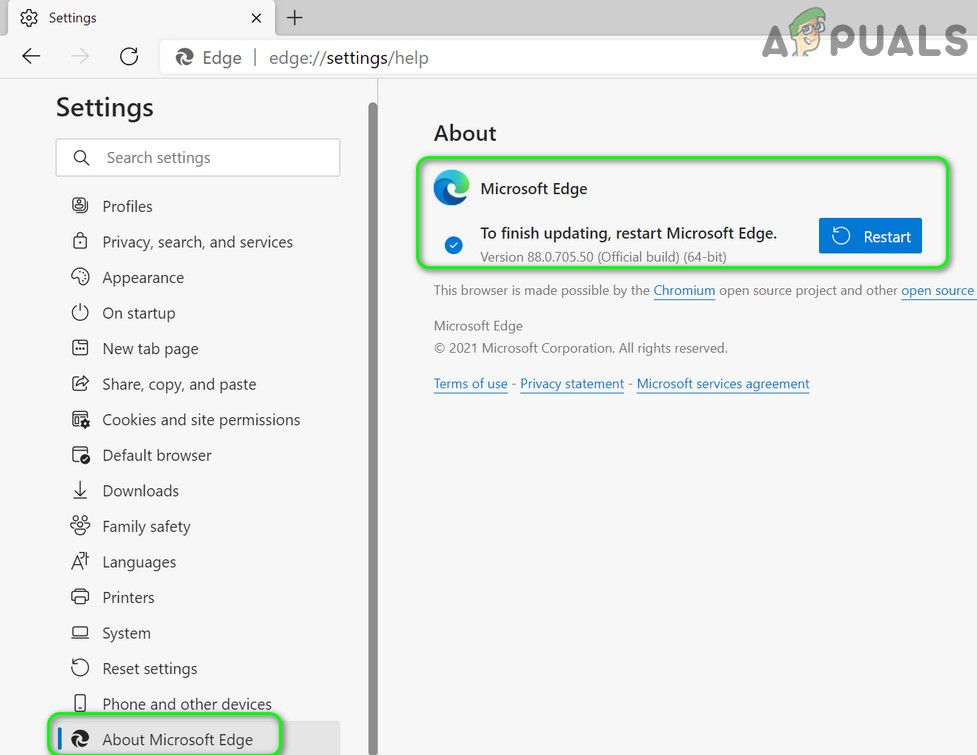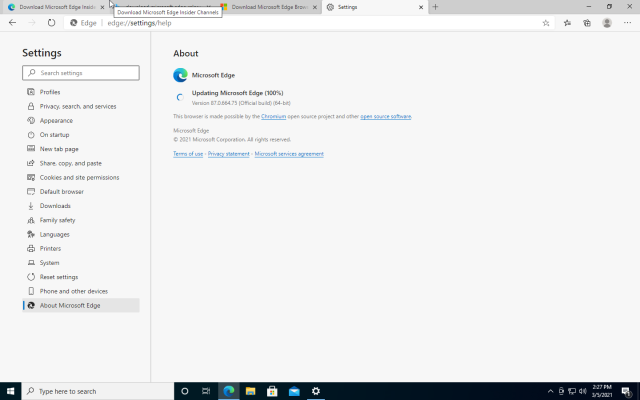This guide will step you through the process of updating your Microsoft Edge web browser. Do you need to know what version of Edge you have?
- Starting with Stable channel version 94, Microsoft Edge is moving to a 4-week major release cycle cadence. However, we recognize that enterprise customers who manage complex environments need more time to plan and test Microsoft Edge updates.
- Starting with Stable channel version 94, Microsoft Edge is moving to a 4-week major release cycle cadence. However, we recognize that enterprise customers who manage complex environments need more time to plan and test Microsoft Edge updates.
To get updates for Microsoft Edge, ensure you have the Updates classification and the Microsoft Edge product selected for synchronization. In the Software Library workspace, expand Microsoft Edge Management and click on the All Microsoft Edge Updates node. If needed, click Synchronize Software Updates in the ribbon to start a synchronization.
Updating Edge on Desktop
This guide will show you how to manually trigger Edge to check for updates and install them if they are found.


Click on the Main Menu button
First, make sure you are running Microsoft Edge and then click the Menu button in the top-right corner of the screen. It looks like three small dots next to each other.
This will reveal the main Edge menu.
Hover over the 'Help and Feedback' menu item
The main Edge menu is quite tall; down the bottom you'll see an item named Help and feedback.
When you hover over the Help and Feedback menu item, a sub-menu will appear.
Click 'About Microsoft Edge'
This will open the 'About' screen for Edge - it contains some information about Edge and will also cause Edge to check that it's up to date.
Edge will automatically check for updates
The About screen for Microsoft Edge will automatically start checking if updates are available. Please wait a few seconds for it to contact Microsoft for the latest version.
If it finds that there is a newer version of Edge available, it will download and install the update.
Once the update is downloaded, you'll need to restart Edge to finish the process.
Edge is now up to date
If you go back to the About screen for Microsoft Edge, you'll now see a confirmation that your copy of Edge is the latest version.
Congratulations! You're now running the latest version of Microsoft Edge!
Edge should check for updates and install them automatically, but sometimes the process fails or is delayed, so this will give you peace of mind that you have the latest version.
Running the latest version of your web browser is an important step in being safe and secure online.
Do you have a really old version of Edge? As of January 2020, the original branch of Microsoft Edge has been discontinued and is now considered the 'legacy' version. It won't receive updates and security fixes, so anyone who is still running it should upgrade immediately.
We have instructions to upgrade the older versions of Edge (Version 44 and below) to the latest version of Edge.
Looking for guides to update other web browsers?
This article describes the release cadence and anticipated release schedule for Microsoft Edge.
Release cadence
Microsoft provides four options, called channels, to manage how often Microsoft Edge is updated with new features. The Microsoft Edge team plans to push public updates to the Beta and Stable channels every six weeks. For more information about our channels, their release cycle, and support levels, see the Channel overview.
Download Microsoft Edge Browser | Microsoft

Note
Top 10 Microsoft Edge Chromium Features // Tips, Tricks And NEW Updates
Starting with Stable channel version 94, Microsoft Edge is moving to a 4-week major release cycle cadence. However, we recognize that enterprise customers who manage complex environments need more time to plan and test Microsoft Edge updates. To help our enterprise customers who need an extended timeline to manage updates, Microsoft Edge will offer an Extended Stable option aligned to a longer, 8-week major release cycle; this option will only be available for customers with managed environments.
Release schedule
The following table lists the planned release dates for the Beta and Stable channels.
Note
Release dates are approximate and might vary based on build status.
Microsoft Edge releases
The following table only tracks and provides information for major releases in both channels.
| Version | Release status | Beta Channel Release week | Stable Channel Release week |
|---|---|---|---|
| 88 | Released Version | 09-Dec-2020 88.0.705.18 | 21-Jan-2021 88.0.705.50 |
| 89 | Released Version | 03-Feb-2021 89.0.774.18 | 04-Mar-2021 89.0.774.45 |
| 90 | Released Version | 16-Mar-2021 90.0.818.8 | Week of 15-Apr-2021 90.0.818.39 |
| 91 | Target release | Week of 27-Apr-2021 | Week of 27-May-2021 |
| 92 | Target release | Week of 08-Jun-2021 | Week of 22-Jul-2021 |
| 93 | Target release | Week of 03-Aug-2021 | Week of 02-Sep-2021 |
| 94 | Target release | Week of 01-Sep-2021 | Week of 23-Sep-2021 |
| 95 | Target release | Week of 28-Sep-2021 | Week of 21-Oct-2021 |
| 96 | Target release | Week of 26-Oct-2021 | Week of 18-Nov-2021 |
| 97 | Target release | Week of 30-Nov-2021 | Week of 06-Jan-2022 |
Release Process
We Are Updating Microsoft Edge
The trigger for Beta and Stable major releases is an equivalent Chromium release.

Progressive rollouts
The date reference (Released/Release week) for the Stable channel references the beginning of the progressive roll out.
Vuzix usb devices driver. We use a progressive rollout model which means that new release availability for any given device could be staggered over upcoming days. For more information, see Progressive rollouts for Microsoft Edge Stable Channel.
See also

